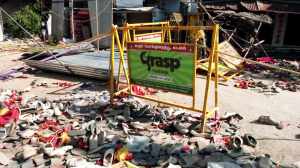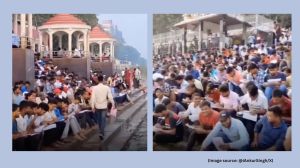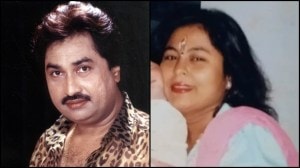HIV: His Individual Victory
In 1989, when K Basantakumar met a group of people in secret—all former Intravenous Drug Users (IDUs)—to share experiences and kee...

In 1989, when K Basantakumar met a group of people in secret—all former Intravenous Drug Users (IDUs)—to share experiences and keep each other out of trouble, he had already been jailed seven times for possession and peddling, lived on the streets, been in and out of rehab, left by his wife and children and plagued by ill-health.
Those were the days when the spread of HIV/AIDS among IDUs zoomed from 0 to 60 per cent in Manipur and drug users were routinely ostracized and arrested.
Basantakumar’s clandestine meetings in Manipur’s busy Thangal Bazaar were probably the start of a unique self-help movement that’s now almost a way of life in the state.
Today, Imphal has over 50 Self-Help Groups (SHGs) for the youth. Several organisations, including the Care Foundation and the Manipur Network of Positive People, are battling Manipur’s biggest twin threat—drugs and HIV/AIDS.
In 1991, after meeting for a couple of years and staying clean, Basantakumar co-founded the Social Awareness Service Organisation (SASO)—an NGO that tried a different approach to drug abuse and the resultant spread of HIV/AIDS due to the sharing of needles and syringes.
SASO provided drug users with clean-use techniques, by making available syringes for individual use, counselling and medication in an effort to curtail the spread of HIV/AIDS among this user community in the state.
The 48-year-old continues this work as project coordinator with North-East India Harm Reduction Network, and is an inspiration to thousands of youngsters who are IDUs and HIV positive.
|
Say no to drugs, says
former peddler |
|||||
|
• K Basantakumar, former peddler, started self-help movement among intravenous drug users |
|||||
‘‘It all began because we wanted to start anew in life and, by being together, the chances of a relapse were diminished. Those days we met secretly and had no funds. Money was raised through housie meets, sports activities and musical nights,’’ recalls Basantakumar.He says making drug use transparent is the only way to win the confidence of users, and convince them to practice safety measures.
‘‘Back in the late ’80s, an IDU accidentally killed a child while trying to rob the child’s earrings. This incident sparked off a huge public outcry. Family members would often get drug users arrested, the police and society cracked down heavily,’’ recalls Basantakumar.
‘‘Instead of solving the problem, this drove them underground. Drug abuse continued, but in secret and through sharing limited syringes, leading to a wider spread of HIV/AIDS and Hepatitis-C,’’ he adds.
But the grassroots movement changed everything. Now, drug users can visit drop-in centres at any NGO and get new syringes, pick up vials of distilled water, get free tea, watch TV or play carrom.





- 01
- 02
- 03
- 04
- 05


























